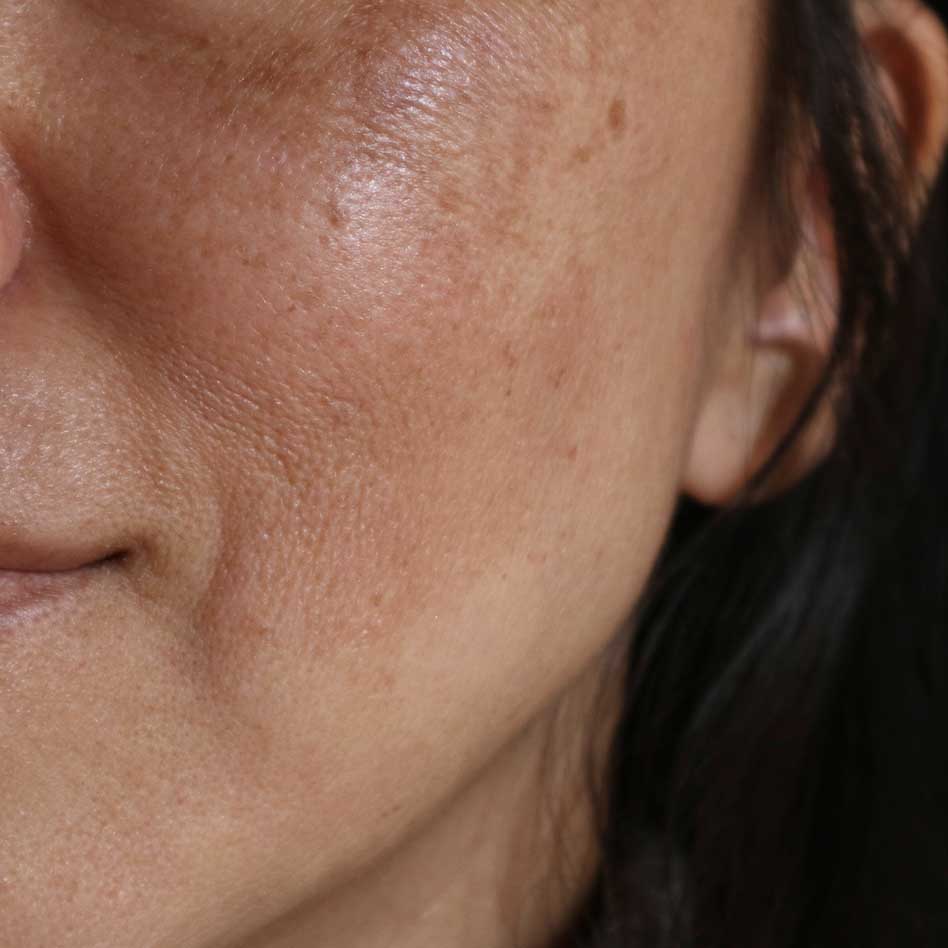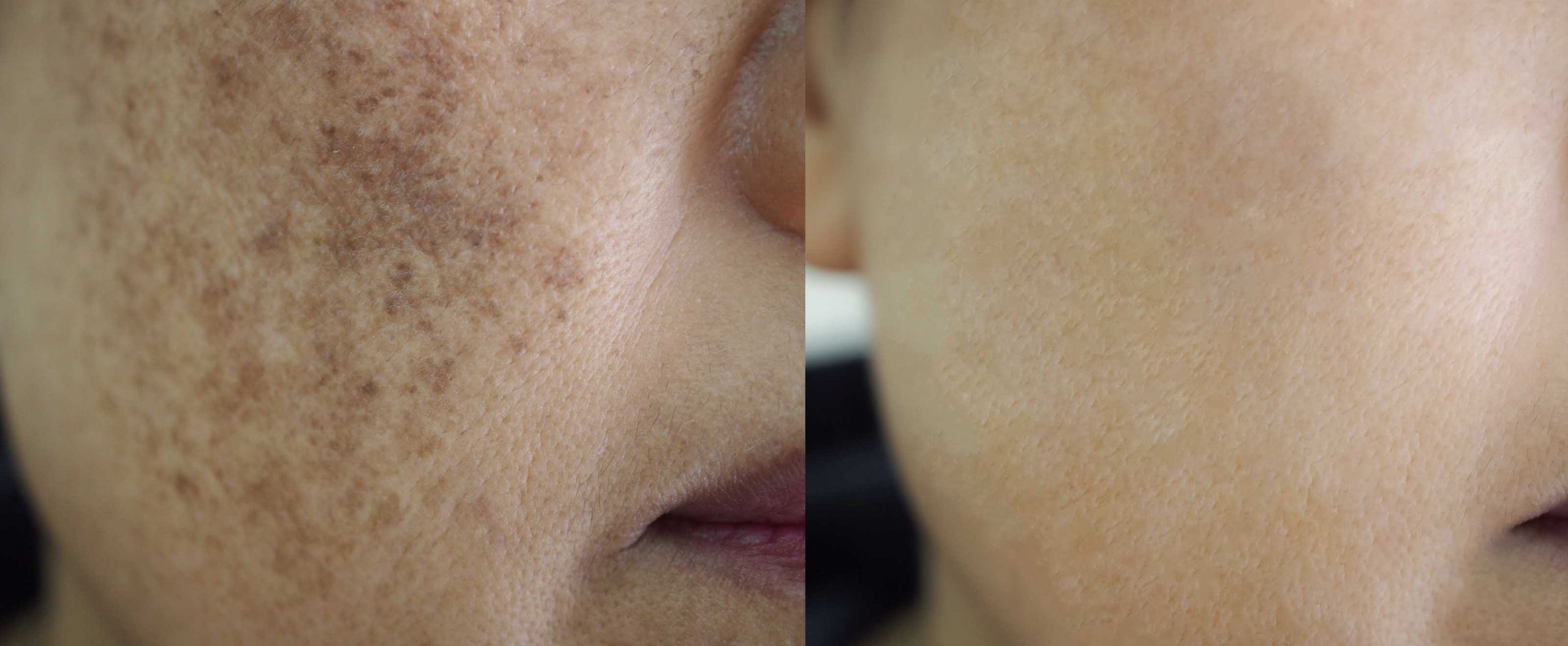Melasma
Resolve melasma pigmentation problems and gain a clearer skin tone
Melasma is a hyperpigmentation condition that involves dark patches of skin being visible, or even prominent, against your natural skin colour. It isn’t harmful, or even indicative of an underlying disease, but some melasma sufferers find the skin areas that are creating too much pigment (melanin), are unsightly and unwanted.
We provide a number of treatments to restore colour balance and a more even skintone. Melasma is most commonly found on the cheeks, nose, forehead, and neck; all places that have been exposed to the sun. As well as sun damage, causes of melasma include hormonal changes; particularly when oestrogen or progesterone are involved, stress, and thyroid disease. We’ll offer you appropriate treatment options for your individual melasma. Medical cream, chemical peels, or light therapy may be suggested.


Consultation
- Detailed history of your skin concern
- Total skin examination
- Holistic assessment of your health
- Diagnosis
- Discussion of treatment options
- Personalised treatment plan
- Treatment
FAQs
Melasma is caused by UV light and / or hormones. The condition is common among pregnant women, and women taking birth control pills.
See answer

Your melasma may fade with treatment, but it can also return. Protecting your skin from the sun can help prevent it from coming back.
See answer

Using a high factor sunscreen can help protect your skin against sun damage and stop melasma from getting worse.
See answer

Melasma is harmless and shouldn’t be mixed up with melanoma; a type of skin cancer. If any of your areas of pigmented skin begin to change, become itchy, or bleed, it’s important you book an urgent examination.
See answer

Chemical peels are one possible treatment option. However, it’s important to bear in mind that it’s not suitable for everyone. Plus, there are many different types of peel solutions that can be applied. It’s important you have your melasma examined, and take advice on chemical peels, before arranging one.
See answer

Laser therapy under our strict guidance may be a solution to your melasma, but until we have examined your skin, we won’t know whether applying high-energy light to it is the best option.
See answer

We treat all melasma cases holistically. This means, we’ll look into the causes of your melasma before making a specific treatment plan. We’ll be able to advise you on the cream, or other treatments that may be more relevant to you, when you visit us for a consultation.
See answer



